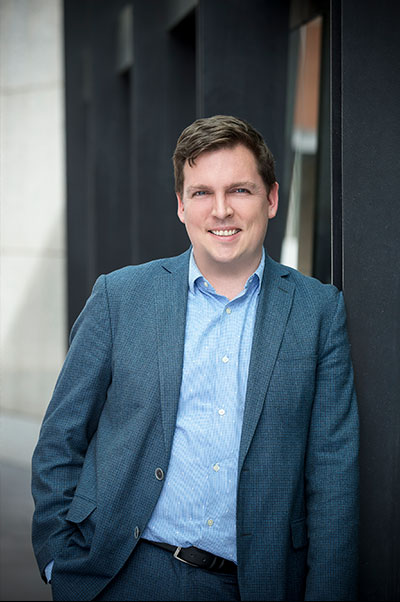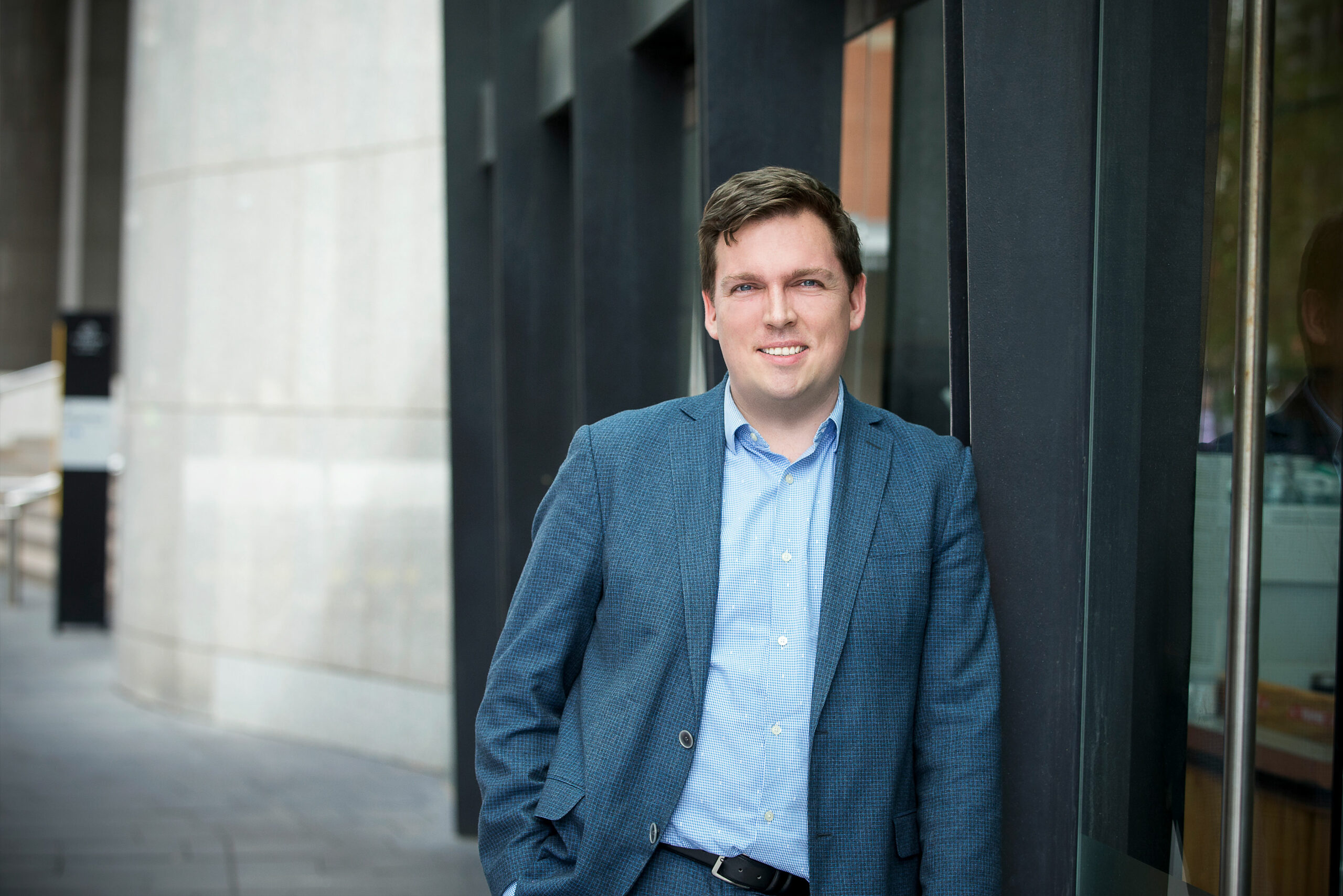SuperRatings’ Kirby Rappell spoke to Superfunds earlier this month, as financial markets began to implode around the world in response to the unprecedented shock from the Coronavirus.
“We’ve moved into a completely different world where nothing can be taken for granted,” he says. “The uncertainty being witnessed across all aspects of life, not just superannuation, are on an unprecedented scale.”
“It’s really putting fund’s portfolios to the test. Everyone is waiting to see whether the lessons of the GFC have been learnt. Are funds able to enact change at the speed that’s going to be required?”
Rappell says that COVID-19 adds just another to a litany of challenges funds already face, including greater Government and regulatory scrutiny, the fallout from the Royal Commission and greater expectations of funds as they make up a bigger proportion of Australian’s assets.
In these challenging times, Rappell says insights and clarity will be vital. “It’s made it really hard to figure out what’s noise and what you need to listen to, how you process it and deal with it at speed.”
Amid the crisis, Rappell sits in an important place. As the head of one of Australia’s leading super research houses, he will be charged with helping super funds—and the broader nation—find a path through this maze.
The key, Rappell says, is to never take the eye off what is best for members.
The key, Rappell says, is to never take the eye off what is best for members.
Despite this age of uncertainty, Rappell knows all about stability. He is a rare person who has only worked for one company.
When he left school, he studied a combined commerce and science degree at Sydney University. He was interested in science and understanding how the world works. “But I figured out it wasn’t my calling,” he says. “I found it wasn’t something that came to me naturally.”
Rappell says he believes it is vital for people to find a role where they can help people. He realised he could help more in finance. He pivoted and joined SuperRatings as a junior quant analyst. He’s been there ever since, moving from junior quant through to general manager of research.
Then in October 2017, when then SuperRatings CEO Adam Gee (now Head of Strategy at GROW Super) left to rejoin KPMG, Rappell was appointed Executive Director.
“I’m very fortunate to be in an organisation where they are happy to support and promote within and help people on their career journey.”
Future goals and fewer funds
Rappell says when he took over leadership, he had a number of goals.
Firstly, to continue to enhance what SuperRatings already does: provide leading superannuation data and insights. Rappell says funds want to make data-led decisions. But there is so much data it can be hard to make sense of it. The key is to provide meaningful insights from that data. That means being “good translators and good storytellers”.
Secondly, Rappell wanted to diversify the firm. He says the reality is that over the next three to five year, as funds merge, SuperRatings will be dealing with a smaller number of total funds.
“How do you successfully navigate that changing market? We want to deal with a wider range of channels—service providers, fund managers, advisers, employers and end members—and tailor to each of those underlying groups in a more meaningful way.”
SuperRatings has already launched research for financial advisers. It is also working with employers, helping them leverage its data and insights to make more informed decisions about their preferred provider of superannuation solutions to employees.
SuperRatings is a division of Lonsec, which provides research across managed funds and equities. Rappell’s third aim is to also help integrate Lonsec’s disparate streams to provide a convenient easy-to-access solution for research across financial services.
While he was at university, Rappell worked full-time selling boats. “It gave me an interesting insight into how to deal with people, which is something I’ve enjoyed through my career.”
Rappell says the highlight of his time in the industry has been the opportunity to deal with people across the broad spectrum of the industry.
He says it has been at times “surreal” to be a younger person in the industry and engaging with executive teams and trustee boards of super funds. “It’s quite a humbling experience to be able to provide your insights to these custodians of people’s retirement savings. That is something I have been privileged to be able to do.”
Rappell says in a lot of areas of finance there are clear winners and losers. “But doing what we do with ratings, talking with the funds and providing insights about areas for improvement, it provides an opportunity to help improve better retirement outcomes for all members. It’s not a zero-sum game.”
Perhaps more than ever, funds need those insights.
Finding clarity in uncertain times
“For everyone in the industry, it seems that nearly everyone is seeking clarity,” Rappell says. “Everyone is struggling with uncertainty, which seems to be in abundant supply at present.”
“We’re seeing a confluence of different factors all coming together at the same time. That’s creating huge flux across super funds, across financial advisers, across fund managers, across service providers to super funds. It’s made it really hard to figure out what’s noise and what you need to listen to, how you process it and deal with it quickly and effectively.”
A major issue is the Government’s Retirement Income Review. Rappell says Australia is trying to enable people to have dignity in retirement. “But a lot of the solutions are quite complex,” he says. Finding a way to make retirement solutions understandable to member is crucial, which has been a real challenge in the past as many members still struggle to understand the current solutions available.
Many believe scale is one of the major solutions to the industry’s challenges.
A question of scale
“Bigger super funds are inevitable, as we see greater pressures and expectations on funds,” Rappell says. However, he says the key questions are: What will make ‘bigger better’? And how do you ensure funds harness their scale to the benefit of their members?
What will make ‘bigger better’? And how do you ensure funds harness their scale to the benefit of their members?
Rappell notes that, despite the emergence of larger funds, fees are continuing to rise because funds are investing in new product propositions and technology solutions. “What does that mean for discussion around how scale benefits are being leveraged and passed back to members and how do you appropriately judge that?
Along with improving investment performance and reducing fees, Rappell says the other lever funds can pull is in the area of financial advice. “How do you make advice more scalable and allow more members to get the benefit of high-quality financial advice. Given the volatility being observed at the moment, it’s perhaps never been more vital that members can be appropriately served here.”
But despite the potential benefits from scale Rappell says it is a false economy that “bigger is better for bigger’s sake”. He says if scale is to deliver, it will be vital for big funds to be good at making hard decisions about what’s in member’s best interests.
“The challenge is, how does the industry prove the benefits of scale are being realised and form a path back to members? It remains a question the ind
ustry needs to clearly demonstrate.
“The answer isn’t certain at this stage,” he adds. “It’s not a fait accompli that bigger will necessarily always lead to better outcomes. It’s whether the funds are good at making the right decisions day in day out and that it has got the member at the centre of it all.”
Photography by Aran Anderson.
What should funds prioritise during COVID-19?
But obviously, the fall-out from the COVID-19 crisis will be paramount in the short term. The Government is providing early access to superannuation for those worst hit by the fall out. At the same time funds have been forced to book billions of dollars of losses on unlisted assets, members are suffering steep falls in their portfolios, and funds may need to play a vital role in providing capital to damaged businesses.
Rappell says in this challenging environment, funds must do three things.
Firstly, they need to be available for their members. “This will require bringing into effect a range of business continuity plans to ensure that they can continue to operate during these times of uncertainty.”
Secondly, cushion members as best as they can from market volatility. “This is arguably the super funds’ greatest challenge,” he says. “Not only does this include making smart investment decisions in testing times, but funds need to ensure that member behaviour is appropriate and that we don’t see panic selling in the say way in which we’ve seen panic buying.
“This is critical to ensuring that members do the right things by themselves now, so that they are not adversely impacting the quality of their retirement in the future.”
Thirdly, Rappell says funds need to work collaboratively with policy makers to ensure that decisions are being made with members’ best interests in mind, whilst at the same time not undermining what is generally regarded to be a world class retirement income system.
Rappell says with the amount of change in the industry, people are likely to be pushing their limits of change.
“While the past few weeks have been a blur at times, how do we not lose sight of the long-term in all aspects at life.”
Amid this flux, Rappell has added flux in his personal life with the arrival of a second child nine months ago.
So this year Rappell says a key objective is finding a new rhythm for work, as we get used to working from home, and spending quality time with our families.
When will Rappell know he’s been successful?
“The moment I’ll feel most comfortable that we’ve achieved what we’re trying to do is when we have super funds coming back and saying, we’re trying to find insights into a complex problem, we were able to find answers faster and more easily than ever before.”







